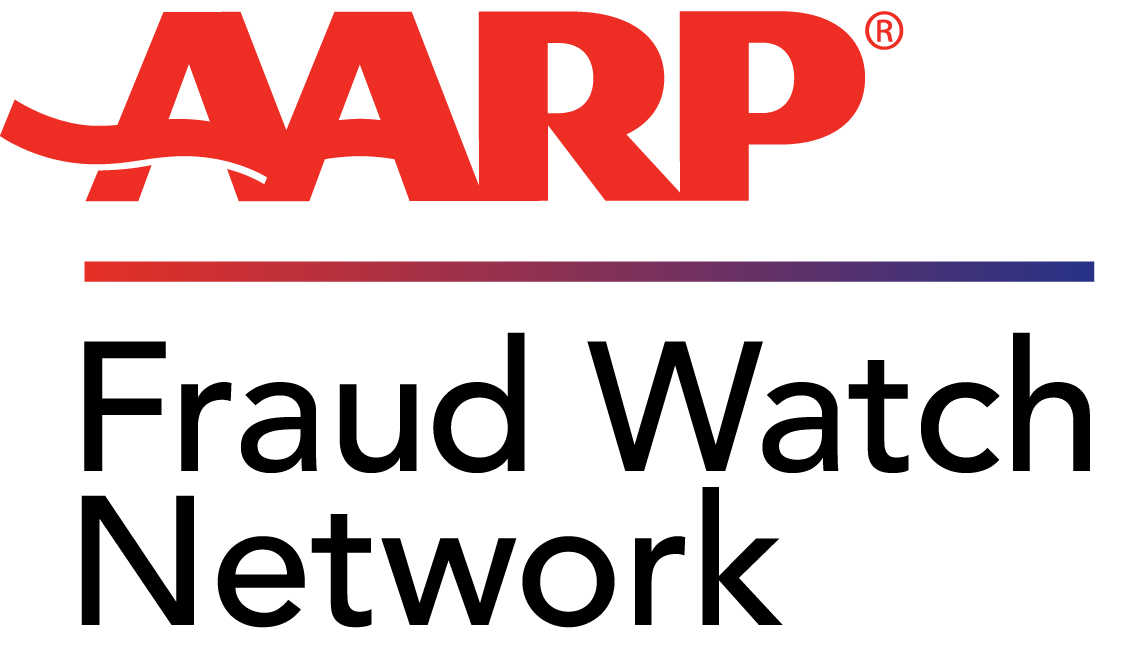AARP Hearing Center

BACKGROUND:
Did you know that someone’s identity gets stolen every two seconds? The AARP Fraud Watch Network provides you with tips and resources to help you spot and avoid identity theft and fraud so you can protect yourself and your family. Our watchdog alerts will keep you up to date on con artists’ latest tricks. It’s free of charge for everyone: AARP members, non-members, and people of all ages. Be a fraud fighter! If you can spot a scam, you can stop a scam. Report scams to local law enforcement. Contact the AARP Fraud Watch Network at www.aarp.org/fraudwatchnetwork for more information on fraud prevention.
The AARP Fraud Watch Network is:
An Educator: Get real-time alerts about the latest scams, tips on how to spot them, and the inside scoop on how con artists think so you can outsmart them before they strike.
A Watchdog: Our nationwide scam tracking map gives you access to a network of people who've spotted scams and the opportunity to pass along your own experiences, so together we can beat con artists at their own game.
A Resource: Get connected to a real live person trained in how to avoid fraud and advise you if you or a loved one has been scammed by calling our fraud hotline or attending a forum in your community.
Free for Everyone: Anyone, of any age, can access our resources at no cost.

SCAM ALERT #1: HELP FOR VICTIMS OF SCAMS AND FRAUD
Every day, unsuspecting Americans, from border to border, are victimized by scammers -- typically working with a highly coordinated and sophisticated network of criminals. For these people, the aftermath often includes shame, loss of security and increased isolation. They feel embarrassed and guilty and don’t know who to turn to, so more often than not, they don’t tell a soul. The AARP Fraud Watch Network is here for you, your friends, and your loved ones who may have experienced this violation. And we’re here to tell you it’s not your fault.
Every week day, trained AARP volunteer fraud fighters are helping victims understand what happened to them, report the crime and start to put their lives back together. If you or someone you know has been the victim of a scam or fraud, call the AARP Fraud Watch Network Helpline at 1-877-908-3360 for support.
SCAM ALERT #2: WHEN CUPID’S A CON ARTIST
Along with the rise in dating website use comes a rise in online dating scams. Scammers create fake profiles, build relationships with individuals through the dating site, and then attempt to steal their money and disappear. You can spot a con artist by recognizing a few red flags: they might propose chatting offline or profess their feelings for you before getting to know you. They may offer to visit if you can help cover travel costs, then cancel those plans at the last minute. Looking for love online works great for many people, but scammers lurk, so be cautious of what information you share, and anytime a “love interest” you’ve never seen in person asks for money, it’s more than likely a scam.

SCAM ALERT #3: FEAR SELLS
In the world of successful scams, it turns out fear sells. While some scams promise riches, romance or a new career, most scams today use fear to steal our money. Scammers seek to create a sense of anxiety, anger or embarrassment in hopes we will make decisions in an emotional, vs. logical, state. If you get a scary call, or an email, or a popup message on your computer, hit pause. Give yourself a minute to think logically before taking an action that could result in loss of money or personal information.

SCAM ALERT #4: WHO ARE YOU REALLY TALKING TO?
Technology has made our lives easier in many ways, but it has also opened us up to many risks that we don’t always recognize. Shopping, banking and getting tech support virtually are becoming the preferred option for many of us, but these conveniences also open doors for impostors. Here are some big red flags: if someone professing to be from a government agency contacts you with an urgent issue you must tend to immediately, it’s a scam. If you get a call or a popup message on your device saying you have a problem with your computer and you need to address it immediately, it’s a scam. If someone – anyone – says you can pay an obligation with a gift card, it’s a scam. Enjoy the conveniences of technology, but stay safe while doing it.
Be a fraud fighter! If you can spot a scam, you can stop a scam.
Report scams to local law enforcement. For help from AARP, call 1-877-908-3360 or visit the AARP Fraud Watch Network at www.aarp.org/fraudwatchnetwork.































































